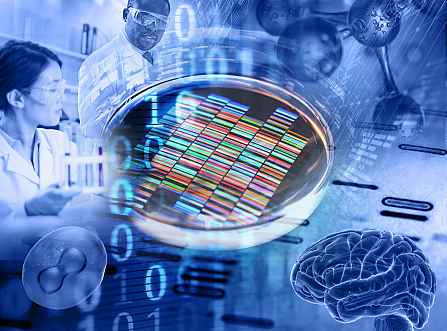Featured
- Get link
- X
- Other Apps
The Impact of NIH Research: Advancing Health and Science
The Impact of NIH Research: Advancing Health and Science
The National Institutes of Health (NIH), a component of the U.S. Department of Health and Human Services, stands as a cornerstone of biomedical and public health research in the United States. For over a century, NIH-funded research has driven forward significant advancements in medicine, improved public health outcomes, and fostered a deeper understanding of complex biological systems. This article explores the profound impact of NIH research on society, economy, and scientific innovation.
Advancements in Medical Knowledge and Treatments
One of the most visible impacts of NIH research is the dramatic improvement in medical knowledge and treatments. NIH funding has been pivotal in breakthroughs across various medical fields:
1. **Cancer Research**
The NIH's National Cancer Institute (NCI) has supported numerous studies leading to new cancer treatments. The development of targeted therapies, immunotherapies, and advancements in early detection methods have significantly improved cancer survival rates.
2. **Infectious Diseases**
NIH research played a crucial role in combating infectious diseases such as HIV/AIDS, tuberculosis, and more recently, COVID-19. The rapid development of vaccines and antiviral treatments has been possible due to decades of prior NIH-supported research in virology and immunology.
3. **Genetics and Genomics**
The Human Genome Project, an international research initiative spearheaded by the NIH, has revolutionized our understanding of genetics. This monumental achievement has paved the way for personalized medicine, where treatments can be tailored to an individual's genetic makeup.
4. **Neuroscience**
NIH funding has enabled significant progress in understanding neurological disorders such as Alzheimer's disease, Parkinson's disease, and autism. These insights are critical for developing effective therapies and interventions.
Public Health Improvements
Beyond individual medical advancements, NIH research has led to widespread public health improvements:
1. **Disease Prevention**
NIH-supported studies have identified risk factors and prevention strategies for numerous diseases, from heart disease to diabetes. Public health campaigns based on this research have helped reduce the prevalence of these conditions.
2. **Health Disparities**
The NIH has also focused on addressing health disparities among different populations. Research into social determinants of health has informed policies and programs aimed at achieving health equity.
3. **Maternal and Child Health**
Research funded by the NIH has led to better prenatal care, improved childbirth practices, and enhanced child health protocols, contributing to lower infant and maternal mortality rates.
Economic Impact
The economic benefits of NIH research are substantial. NIH funding not only supports scientific innovation but also stimulates economic growth:
1. **Job Creation**
NIH grants fund research institutions, universities, and biotech companies, creating jobs for scientists, technicians, and support staff. This funding also attracts additional investments from the private sector.
2. **Healthcare Cost Savings**
Advances in disease prevention, early detection, and effective treatments reduce healthcare costs. For example, effective vaccination programs and early interventions for chronic diseases can save billions in medical expenses.
3. **Biotechnology Industry Growth**
NIH research has been the backbone of the biotechnology industry. Innovations born from NIH-funded research often lead to the development of new medical devices, diagnostic tools, and pharmaceuticals, contributing to the industry’s growth and global competitiveness.
Fostering Scientific Innovation
The NIH plays a crucial role in fostering scientific innovation by providing the resources and infrastructure needed for cutting-edge research:
1. **Collaborative Research**
The NIH facilitates collaboration among researchers across different disciplines and institutions. This collaborative approach accelerates scientific discoveries and the translation of research into practical applications.
2. **Training the Next Generation**
NIH funding supports the training and development of future scientists and healthcare professionals. This investment in human capital ensures a continuous pipeline of skilled researchers dedicated to advancing medical science.
3. **Basic Research**
While the immediate applications of basic research may not be apparent, it lays the groundwork for future breakthroughs. The NIH's commitment to funding basic research is essential for long-term scientific progress.
Conclusion
The impact of NIH research extends far beyond the confines of laboratories and academic journals. It touches the lives of millions of people by improving health outcomes, driving economic growth, and fostering a culture of scientific excellence. As we look to the future, continued support for the NIH is crucial for sustaining the momentum of biomedical research and addressing the evolving health challenges of our time. By investing in NIH research, we invest in a healthier, more prosperous future for all.
- Get link
- X
- Other Apps
Popular Posts
Behavioral Health: The Cornerstone of Whole-Person Health
- Get link
- X
- Other Apps





Comments
Post a Comment